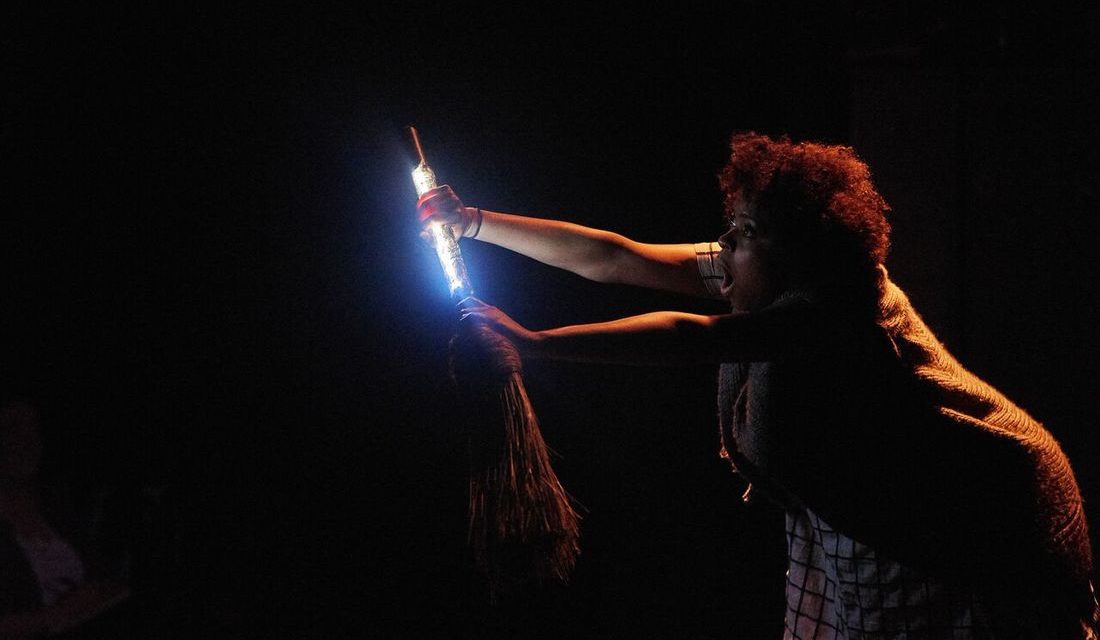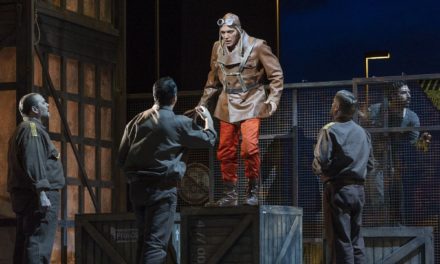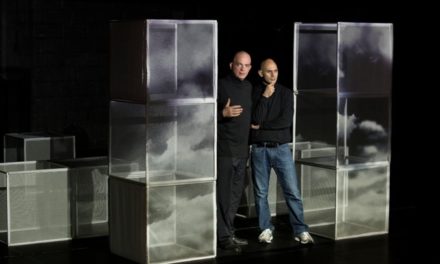This February, playwright Georgina Escobar’s Then They Forgot About the Rest will receive a staged reading at Stages Repertory Theatre’s second annual Sin Muros Latinx Theatre Festival in Houston, Texas. The staged reading marks a homecoming of sorts for Escobar, who is from the Juarez/El Paso borderlands. In Houston, Escobar will work with fellow fronteriza artist Rebecca Rivas, who will direct the workshop. Now based in New York City, Escobar’s plays include Alebrijes, Ash Tree, Sweep, The Ruin, B.I. (Be), Penny Pinball Presents The Beacons. Her work has been produced or developed at Milagro, Clubbed Thumb, the Lincoln Center, INTAR, The Sol Project, Bushwick Starr, New York Children’s Theatre, Aurora Theatre, Duke City Repertory Theatre, and the Latinx Theatre Commons.
In this interview, Escobar discusses Then They Forgot About the Rest, working with director Rebecca Rivas, and what she hopes to learn about her work during the upcoming Sin Muros Latinx Theatre Festival.
Trevor Boffone: Tell us about your new play Then They Forgot About the Rest.
Georgina Escobar: It was written as part of the Brooklyn Generator All Stars season, which culminated in a reading with Anne Cecilia Haney-DeMelo directing. Then They Forgot About the Rest is a movement in memory minor—a play inspired by the question: What is worth forgetting? My grandmother has Alzheimer’s. And, at its bare bones, Then They Forgot About The Rest has been one of many a process of trying to understand, once more, what effect pharma has, or has had, on our parents and grandparents’ generation. Significantly, what things could it plausibly lead to? Early-Early onset? It reimagines these things in a not too distant future, One Minute to Midnight, in a town reminiscent of Truth or Consequences, New Mexico, and in an ad-agency called “The Rest.”
The title inevitably echoes the beautiful Fornés documentary by Michelle Memran: The Rest I Make Up. Because, in many ways, this play is really just about mourning those who forget, and/or make up the rest.
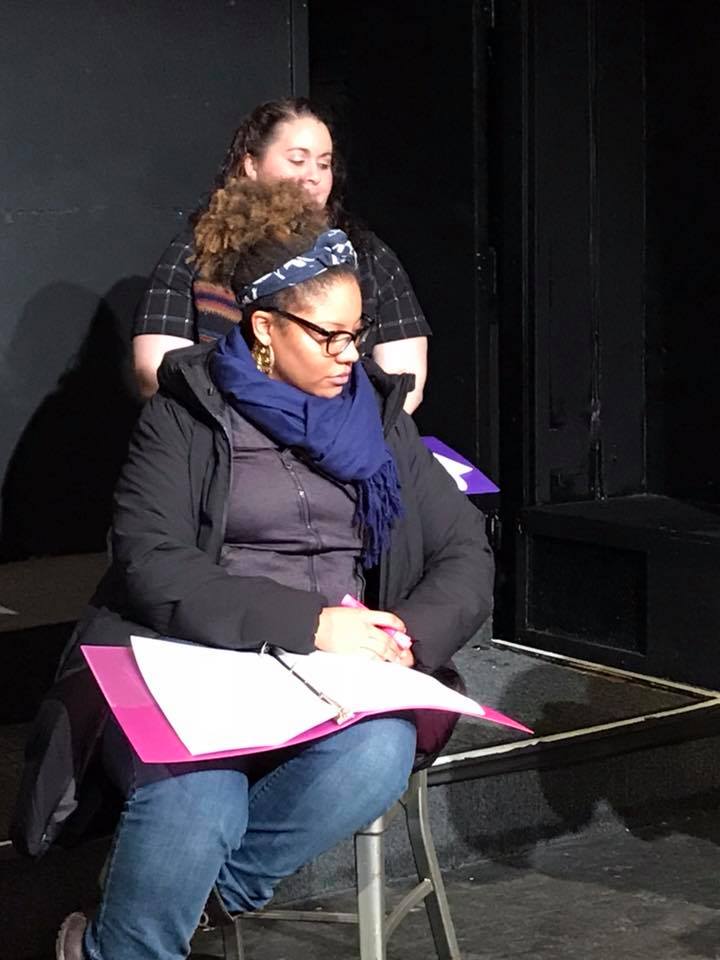
Guadalís Del Carmen as Roe in “Then They Forgot About the Rest.” Photo credit: Georgina Escobar.
Trevor: What have been the most unexpected aspects of developing this play? What have been the biggest challenges?
Georgina: An unexpected aspect of developing this play has been the response it had with a wonderful NY choreographer who happened to be at the reading. I could tell the piece moved him melodically and that was unexpected and also great.
The biggest challenge is making something that can transcend logic and still remain parallel to a solid story. This play balances a ‘solid’ a storyline of two sisters, with heightened elements that allow for the porous—to make sense of what makes no sense about Alzheimer’s. The best way to work through those for me is keeping true to the backbone of a story while encouraging daring imagination in its representation and knowing how to recognize what registers with your audiences and why.
Trevor: I’ve noticed that your creative process includes painting, drawing, doodling, etc. Can you tell us more about how visual art-making informs your playwriting?
Georgina: I can’t help it. It’s an old-school conversation with subject. When I was in primary school, the nuns caught me drawing all the time but also noted that I was not suffering in the maths and sciences. I was allowed to draw in class while the teachers dictated. It’s how I listen, and also how I can make sense of what I see or don’t see. Language is last, really. Not all the things I paint, draw, sketch, or doodle end up being plays, but I won’t really start a play unless I’ve had a visual or musical experience with it long before I sit down to type.
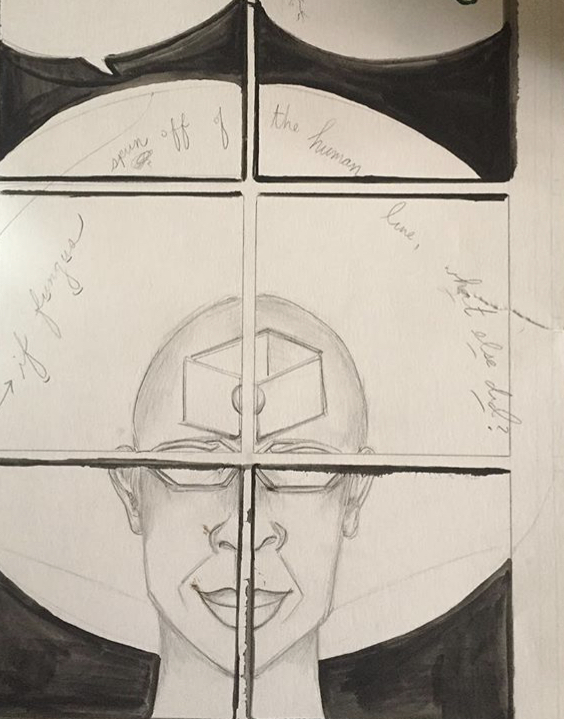
Escobar’s doodle of Roe from “Then They Forgot About the Rest.” Photo credit: Georgina Escobar.
Trevor: What are you hoping to learn about Then They Forgot About the Rest while working with director Rebecca Rivas at Sin Muros? Why did you want to work with Rivas on this project specifically?
Georgina: I want to learn the style of the piece! The rhythm. The “Swishes” and “Swooshes” that move us from fragment to fragment. I want to have an honest encounter with the words through actors to find out where it works and where it doesn’t. And Rebecca is a dream! We’ve known each other for about 20 years and have worked on many plays together at the University of Texas El Paso. It’s a homecoming of sorts, to work with a fellow Texan and friend, collaborator, and brilliant artist. I know Rebecca as a tremendous actor and singer—we were even in a band together!—and have been following her work as a director in El Paso. I am excited about her aesthetic and our symbiotic frontera language. I need the borderlands grit for this piece to work. I also needed someone who had that musicality, and understood the style.
Trevor: Notably, Then They Forgot About the Rest is part of the same universe—The Wayfoot Universe—as your other plays such as Sweep. What are you hoping to achieve with these plays? Why set them in the same universe and intermingle characters and plot points?
Georgina: I’m asking improbable questions seeking impossible answers. Our way of thinking and being, as a collective human race, hasn’t exactly led to our greatest potential. Violence, greed, and hatred are strongly manifested in every aspect of our existence as a species. I ask myself constantly: From the biological to the chemical to the societal structures; how can we, or can’t we ever, change? The Wayfoot universe is every piece of art making, dark or humorous, absurd or accessible, including Sweep, dealing with that question. The Wayfoot Universe covers multiple mediums because, truthfully, it is still a mystery to me.
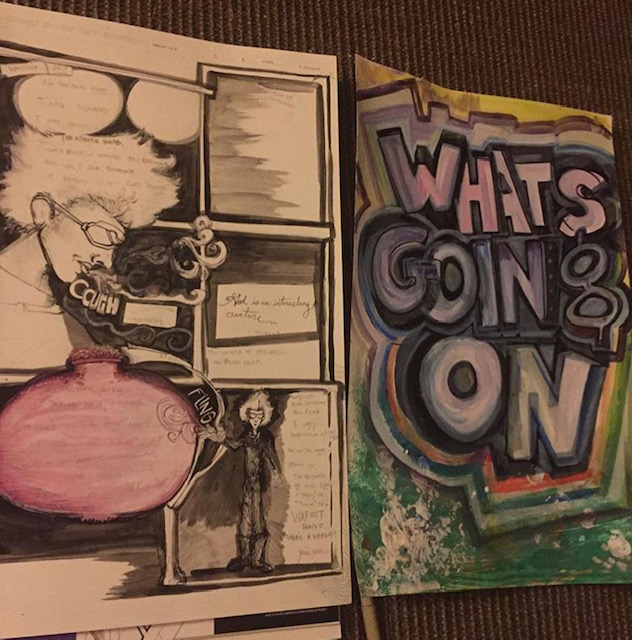
The Wayfoot Universe. Photo credit: Georgina Escobar.
Trevor: You’ve been very involved nationally in the contemporary Latinx theatre movement, primarily through your work with the Latinx Theatre Commons. How has your activist and community-building work influenced your playwriting?
Georgina: I don’t know if I actively campaign for social change, at least, I don’t feel that I am as presently on the front lines of that as much as many other brilliant artists are, (though I’d like to believe that art is change) but I’d say I strongly believe in reciprocity and generosity. For that reason, I am a huge fan of donating time, ears, voice, and other aspects of my artistic self towards the building of communities, strengthening voices, and propelling movements. From the Latinx Theatre Commons since Boston 2013, to the Climate Commons for Theatre and Performance currently, I can only hope to continue to see national movements like these grow. I’m not sure how this influences the playwriting other than it has taught me to remain humble and to listen to the circle in the room, both in a commons and in a rehearsal room. And in this way, it invites community into my play making—which I love!
Trevor: What else are you working on now?
Georgina: I just had a workshop reading of StoneHeart, a new play that I’m super excited about and which has been my companion in a year’s worth of generative residencies. It makes me feel incredibly proud to put this piece out into the world as my homage to the city of generations, Ciudad Juárez. I’m also about to have a reading as part of the Bushwick Starr’s Reading Series of Species:Human which deals largely with suicide (joy!) and Darwin’s voyage on board the HM Beagle all the while people are turning into pigeons, and the girl who can stop it, “just can’t kill spiders.” Needless to say, it’s absurd and incredibly fun to write and for actors to play in. Then I’ll be at Sin Muros with you! And after that I’ll be developing the ultra-difficult Penny Pinball Presents The Beacons in Spring 2019.
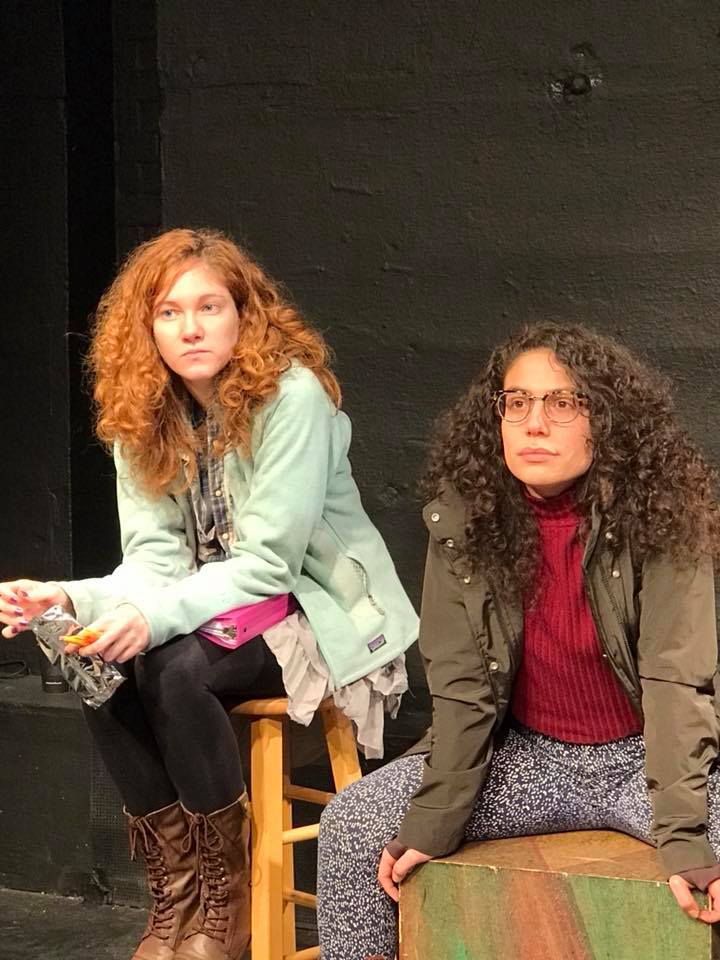
Andrea Lopez and Sara Ornelas in “Then They Forgot About the Rest.” Photo credit: Georgina Escobar.
This post was written by the author in their personal capacity.The opinions expressed in this article are the author’s own and do not reflect the view of The Theatre Times, their staff or collaborators.
This post was written by Trevor Boffone.
The views expressed here belong to the author and do not necessarily reflect our views and opinions.

